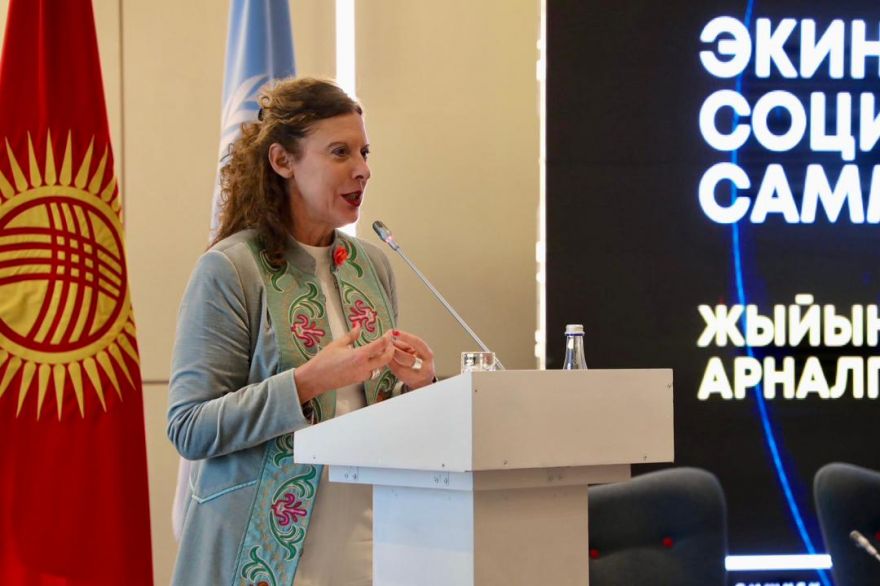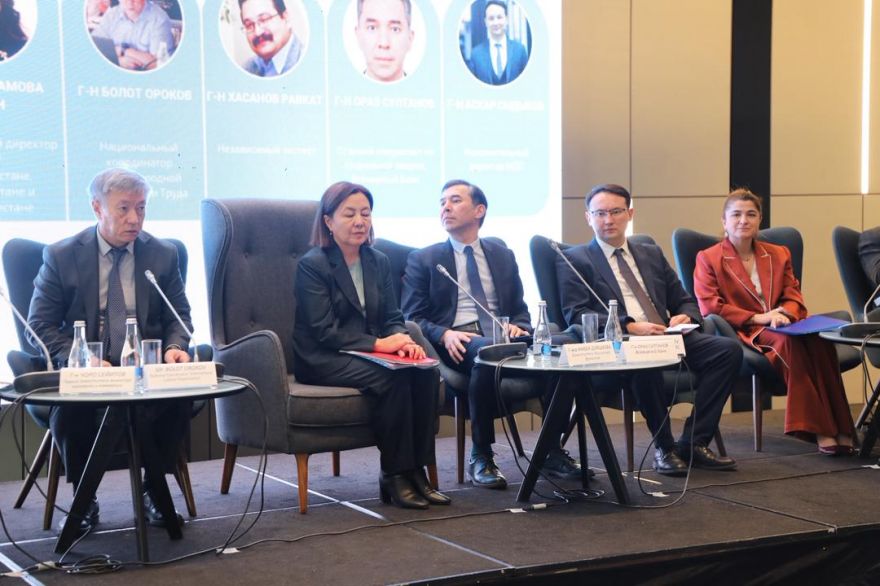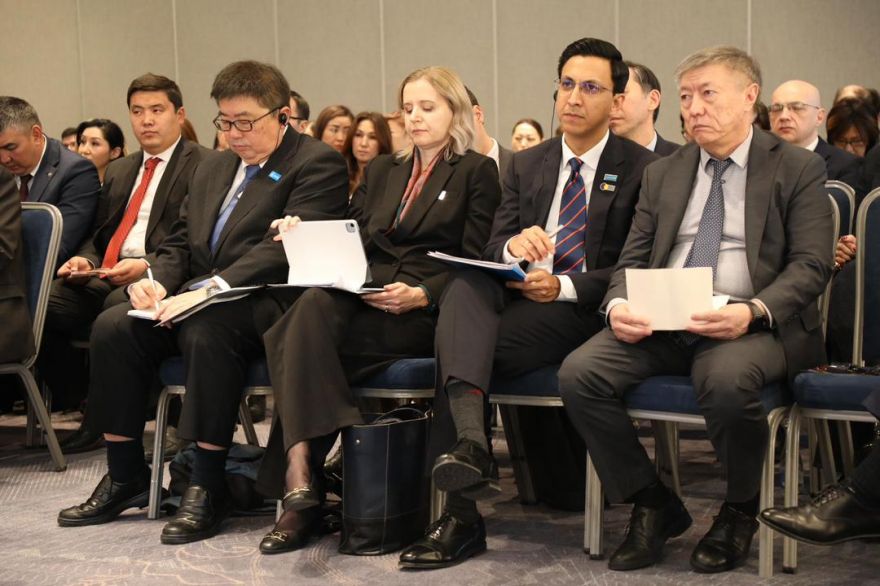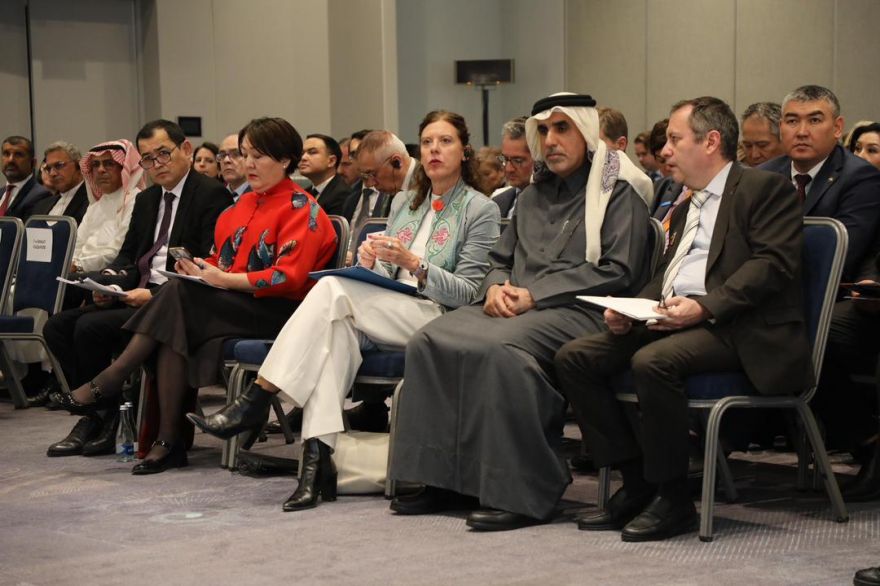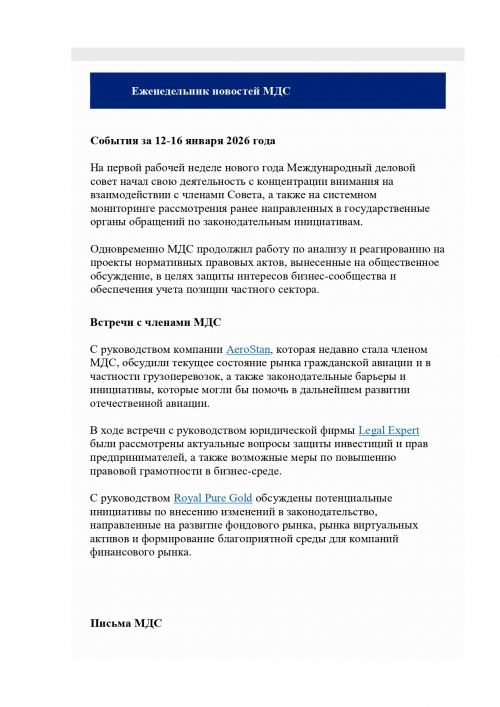News /
IBC news /
How government and business can cooperate in developing human capital
On November 25, 2025, high-level consultations "From Doha to Bishkek" were held in Bishkek following the World Summit for Social Development (WSSD), which took place from November 4-6 in Doha, Qatar.
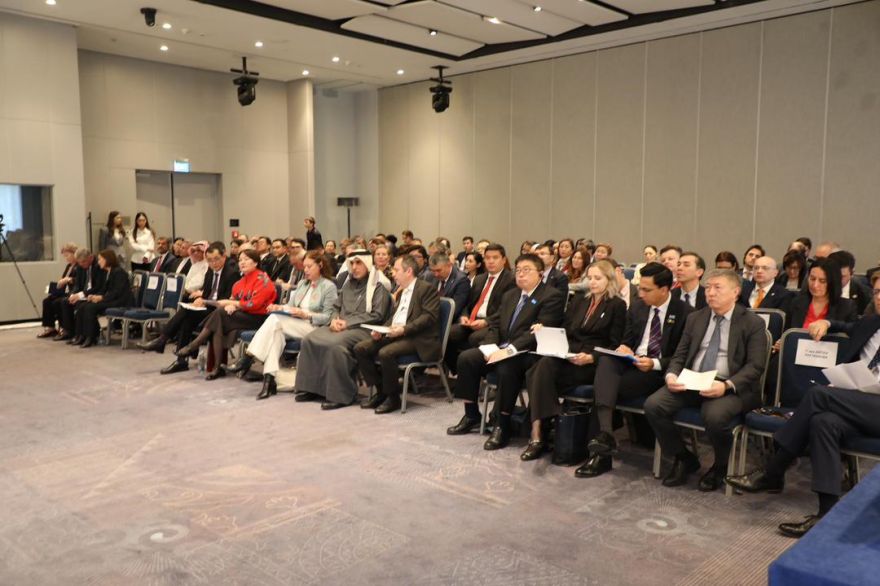
The event was attended by representatives of international organizations, the Cabinet of Ministers of the Kyrgyz Republic, government agencies, the business community, and experts.
Participants in the session "Investing in People: Building Kyrgyzstan’s Human Capital" identified key policy actions across education, health, employment, and social protection to translate these commitments into national priorities.
How can Kyrgyzstan improve the effectiveness of public spending on human capital? What policy changes are needed to mobilize and coordinate private investment to strengthen human development? These issues were the focus of the session "Resilience, Partnerships & Financing for Human Capital Development." The session translated the Doha Political Declaration’s call for sustainable and inclusive financing, investment in people, and climate-resilient growth into practical actions supporting the NDP 2030 (2026–2030).
"For businesses to become real co-investors in human capital, we need more than just financial instruments. We need an environment that motivates people and companies to invest in knowledge, skills, and productivity," said Askar Sydykov, Executive Director of the International Business Council (IBC), outlining priorities in this area.
Predictable, transparent and fair institutions
The experience of every country shows that the private sector invests in people when it is confident in the stability of the rules of the game, as well as the security of the results of labor and investments.
"People invest in human capital, skills, and quality of life only if they feel personal freedom, security, and the opportunity for self-fulfillment," says Askar Sydykov.
International indices clearly reflect the current situation. The Human Freedom Index ranks Kyrgyzstan 81st out of 165, reflecting restrictions on personal and economic freedom. Freedom House gives it a score of 26 out of 100, indicating weak civil rights protections. The Legatum Prosperity Index places our region weakest in the area of business conditions.
“These rankings are important for human capital because people learn, develop, and build careers only where their efforts are valued, and businesses invest in talent only where there is trust in institutions," the IBC head said.
A government system with meritocracy, predictability, and the protection of rights tends to motivate people to learn and create. Meritocracy rewards talent and effort, predictability provides a stable path for advancement, and protection of rights ensures that innovation is secure, creating a society where individuals have a strong incentive to invest in their skills and generate new ideas.
However, if decisions are made in a non-transparent manner, meritocracy weakens, and promotions depend on informal factors, then the motivation to develop skills drops sharply.
Currently, there is an increasing role of the state in many sectors of the economy. This creates the risk of crowding out the private sector.
"As the state's role in the economy increases, the space for competition and entrepreneurship shrinks. People believe less that success depends on their skills. As a result, they learn less, which leads to less innovation and lower productivity in the country," concluded Sydykov.
Positive trends
Kyrgyzstan remains one of the most economically liberal in the region, with digitalization of public services reducing barriers. The IT, fintech, and creative industries are growing. Public demand for fairness and transparency has become much more pronounced. These trends can be transformed into real competitive advantages.
For businesses to become co-investors in human capital, tax and regulatory incentives are needed for companies that train employees, invest in corporate development programs, and create internships and competence centers. Dual education centers, industry academies, and corporate professional development programs can work in partnership with the Ministry of Education, the Ministry of Labor, the ILO, and development partners.
Business participation in government programs
Businesses are willing to invest in people if they understand that government programs are developed jointly with the private sector, that reforms are implemented systematically and consistently, that results are measured, and that accountability mechanisms are in place. Human capital grows where people feel comfortable living, studying, working, and starting a business, where freedom, fairness, predictability, skills, and initiative are valued above all else.
Kyrgyzstan has great potential for this including a young demographic, an entrepreneurial culture, an open society, growing digital skills, and the ambitious goals of the National Development Program 2030.
"The goal is to transform this potential into real growth in human capital. The private sector is willing to invest if conditions are created for these investments to yield results," the IBC head expressed the business community's opinion.
For the private sector to become a co-investor in human capital, not only a predictable environment is needed, but also a belief that the country has a bright future.
"When businesses see such a future, they invest not out of a sense of duty, but out of conviction. They become partners with the state in a major mission—the creation of modern human capital," Askar Sydykov concluded.
